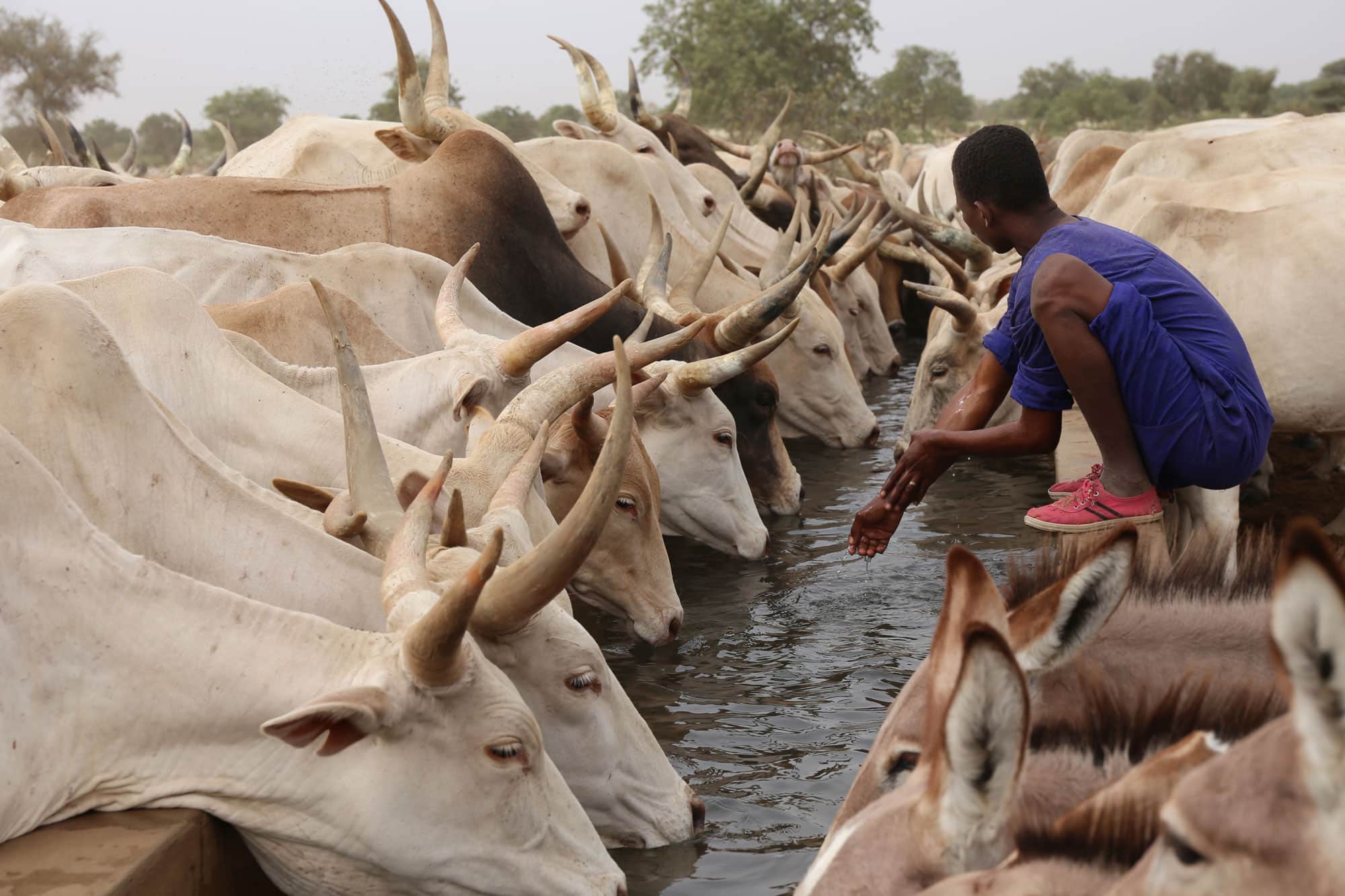While many in Guinea understand the health risks of interacting with potentially sick animals, the health benefits of avoiding diseases that spread from livestock to humans might not outweigh the more urgent need to provide nutrition to their family, resulting in people opting to eat sick animals or meat of uncertain origin.
A variety of individual behaviors can prevent the transmission of zoonotic diseases: vaccination, good hygiene practices during food preparation, care-seeking for zoonotic diseases, or wearing protective equipment when in contact with live animals or animal products.
But new research, led by the Johns Hopkins Center for Communication Programs and recently published in PLoS Global Health, suggests that both concerns of livelihood and feelings that others in the community aren’t taking protective measures can make it difficult for people to engage in protective behaviors. Guinea, like many other nations, faces threats from zoonotic diseases such as rabies and Lassa fever transmitted to humans by animals.
“There’s a general feeling of powerlessness to impact the behavior of others and the financial component of culling sick animals that makes people reluctant to take certain measures,” says CCP’s Tilly Gurman, who led the study.
“In public health, we often think about the health side, the health consequences of behaving in a certain way. What this study tells us is that the financial pull is a bigger factor than the health pull. In other words, the health benefit of avoiding possible disease in the future might not outweigh the more urgent need to provide nutrition to their family.”
In Guinea raising livestock provides the livelihood of 30 percent of the rural population, the authors say.
The data suggest that one reason people aware of risks may not engage in prevention behavior was the ongoing lack of certainty of their ability to control their risk. This came out in discussions about rabies vaccination. People were willing to vaccinate their own pets, but worried about wild unvaccinated dogs that could just as easily bite them or their children.
A total of 229 individuals who interact with animals or influence those interactions participated in the study. In-depth interviews engaged local community leaders, media professionals, human- or animal-health providers (formal or community-based), including veterinarians. Focus group discussions included members of the general population and professional animal handlers, including livestock sellers, hunters, and butchers, and animal farmers/breeders.
Once data were collected, the data was brought back to Guinea for a weeklong data analysis workshop that involved local stakeholders, including key staff from various relevant government ministries, staff from CCP-led Breakthrough ACTION Guinea and several data collectors. “This novel approach to data analysis yielded actionable findings and practical implications that were well-grounded in the local context,” Gurman says.
This study provides helpful implications to improve current and inform future programs aimed at the prevention, control, and surveillance of known priority diseases for Guinea and for future outbreaks and emerging zoonotic diseases.
“Policies and programs should work to reduce uncertainty and make it easier for people to safeguard their investment and livelihood found in animals,” the authors write. “For example, making meat certification more visible, such as via a seal of approval, could increase people’s confidence in the meat they consume.”
The study also reinforces the importance of communication in the face of uncertainty in the human and animal health environment. Moreover, while “the list of priority zoonotic diseases in Guinea continues to evolve, the need to discover ways to effectively promote the related prevention behaviors remains,” the authors write. “As a result, the successful prevention and management of zoonotic diseases demands a thorough and culturally nuanced understanding of the various factors that influence human behavior at multiple levels.”
“Balancing the uncertain and unpredictable nature of possible zoonotic disease transmission with the value placed on animals: Findings from a qualitative study in Guinea” was written by Tilly A. Gurman, Kendela Diallo, Elizabeth Larson, Kathryn Sugg and Natalie Tibbels.





